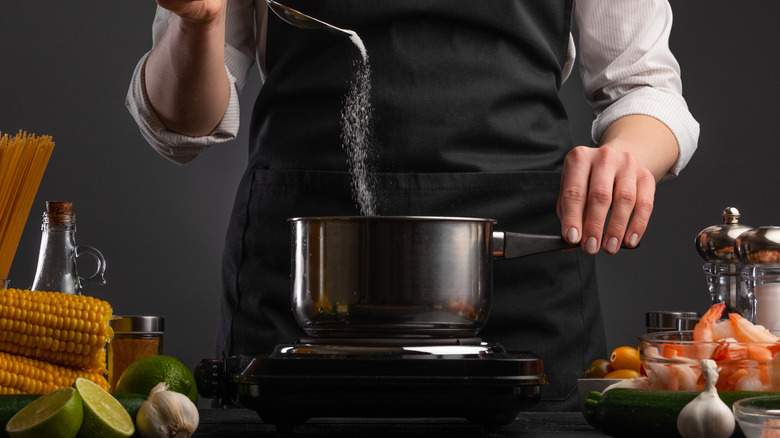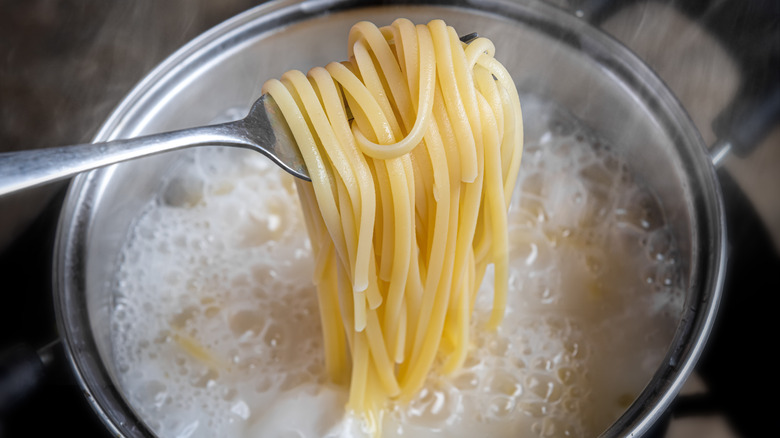How Much Salt Should You Be Adding To Pasta Water?
Boiling pasta is about as simple as it gets, but even the easiest ingredients to prepare can be botched if specific steps are executed poorly. Salting pasta water is something most folks know they should do, but all too often, it's not done correctly. The precise amount of salt added to the appropriate amount of water to boil pasta is critical, and it makes all the difference when you taste the final product.
The guiding principle for salting pasta water is to put in two tablespoons per gallon of liquid. If you are used to only adding a pinch before your dried noodles enter the pot, this will seem extreme, but it's the way to go if you want your entire dish to come out perfectly. It's best to include the salt as the liquid reaches a boil, which should help it to dissolve quickly and thoroughly. If you're unsure if you put enough in, give the water a taste. Take a spoonful, let it cool, and if it tastes briny (but not so much that it makes you pucker) you have just the right amount.
Why enough salt is crucial for pasta
Some folks think that an impeccable sauce is all that's needed to make an Italian staple shine, but the noodles themselves are typically somewhat tasteless. If left unseasoned, they are essentially just vessels for the sauce. When dried pasta boils in salty water, it will absorb the sodium, enhancing the flavor throughout the noodles. This balances the overall profile and makes the pasta itself a flavorful component of the completed dish.
Salting the water not only elevates the flavor of the noodles but enhances the texture as well. Starchy, sticky fettuccini or spaghetti is off-putting at best. Some folks add olive oil to pasta water to keep the noodles from sticking together, but this is simply a waste of oil. Others make the mistake of rinsing the pasta after it reaches al dente texture. However, you want a little bit of starch to remain because it helps the sauce adhere to the carbs, and rinsing it washes this away. When the noodles boil, salted water helps keep the starch particles from swelling while they cook, resulting in slightly starchy pasta that is just right for your home-cooked Italian meal.

